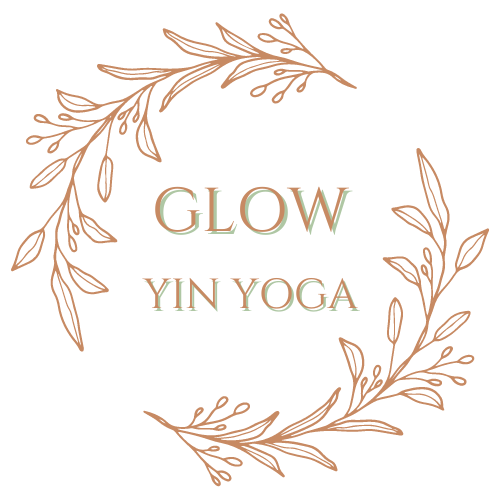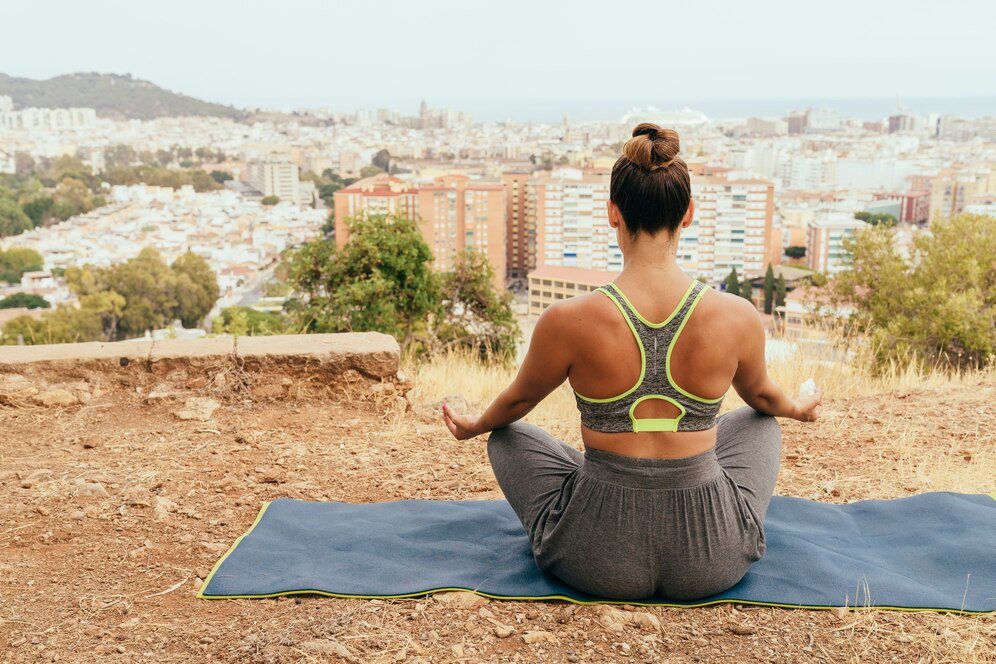Improved Flexibility
One of the most well-known benefits of Yin Yoga is increased flexibility. By holding postures for extended periods, Yin Yoga targets the deep connective tissues, including ligaments, tendons, and fascia. This prolonged stretching helps to lengthen and loosen these tissues, improving overall flexibility. As a result, practitioners often notice enhanced range of motion and reduced stiffness in the joints and muscles.
Increased Joint Health
Yin Yoga promotes better joint health by gently stretching and nourishing the connective tissues around the joints. The practice encourages the release of synovial fluid, which lubricates the joints and improves their function. Regular practice can help maintain joint flexibility, reduce discomfort, and prevent conditions such as arthritis.
Enhanced Circulation
Holding postures for extended periods in Yin Yoga helps to increase blood flow to the connective tissues and muscles. Improved circulation enhances the delivery of oxygen and nutrients to the tissues while aiding in the removal of metabolic waste products. This boost in circulation supports overall cardiovascular health and contributes to a sense of vitality and well-being.
Reduced Muscle Tension
Yin Yoga is effective in releasing tension stored in the muscles. The slow and mindful nature of the practice allows practitioners to relax deeply into each posture, releasing tightness and stress. This can lead to a reduction in muscle soreness, improved muscle elasticity, and a greater sense of relaxation throughout the body.
Stress Reduction
The meditative aspect of Yin Yoga contributes significantly to stress reduction. The practice encourages a calm and mindful approach, allowing practitioners to unwind and release mental and emotional tension. By focusing on the breath and remaining still in each posture, practitioners can achieve a state of deep relaxation and mental clarity, reducing overall stress levels.
Improved Mindfulness and Self-Awareness
Yin Yoga fosters mindfulness and self-awareness by encouraging practitioners to tune into their bodies and observe their thoughts and sensations without judgment. This heightened awareness can lead to a deeper understanding of oneself, increased emotional intelligence, and a greater capacity to respond to life’s challenges with calm and clarity.
Enhanced Emotional Balance
Practicing Yin Yoga can help release stored emotional tension and promote emotional balance. The deep, passive stretches and extended holds allow practitioners to access and process emotions that may be trapped in the body. This can lead to improved emotional resilience, reduced anxiety, and a greater sense of inner peace.
Increased Patience and Persistence
The nature of Yin Yoga requires practitioners to hold postures for extended periods, which can cultivate patience and persistence. By learning to be present and accepting discomfort without resistance, practitioners develop a sense of perseverance that extends beyond the mat and into daily life.
Better Sleep
The relaxation induced by Yin Yoga can contribute to improved sleep quality. The practice helps to calm the nervous system, reduce stress, and promote relaxation, all of which can lead to a more restful and restorative sleep. Incorporating Yin Yoga into your evening routine may help alleviate insomnia and enhance overall sleep patterns.
Enhanced Recovery
For athletes or individuals engaging in rigorous physical activity, Yin Yoga can aid in recovery by stretching and releasing tension in overworked muscles. The practice helps to restore flexibility, reduce soreness, and promote faster recovery between workouts. It complements more intense forms of exercise by providing a restorative and balancing effect.
Increased Energy and Vitality
While Yin Yoga is gentle and slow-paced, it can have an invigorating effect on the body and mind. Improved circulation, reduced stress, and enhanced emotional balance contribute to a greater sense of energy and vitality. Practitioners often report feeling more rejuvenated and centered after a Yin Yoga session.
Enhanced Spiritual Connection
For those interested in the spiritual aspects of yoga, Yin Yoga provides an opportunity for deeper introspection and connection with one’s inner self. The practice’s meditative nature encourages a spiritual exploration, fostering a sense of inner peace, purpose, and connection to a higher self or universal consciousness.
Improved Posture and Alignment
Yin Yoga can contribute to better posture and alignment by addressing imbalances and tightness in the connective tissues. The practice helps to release restrictions and promote proper alignment, which can lead to improved posture and reduced strain on the spine and other areas of the body.
Accessibility for All Levels
Yin Yoga is accessible to practitioners of all levels, including beginners, seniors, and those with physical limitations. The use of props and the ability to modify postures make the practice adaptable to individual needs and abilities. This inclusivity ensures that everyone can experience the benefits of Yin Yoga regardless of their starting point.
Holistic Well-being
Overall, Yin Yoga supports holistic well-being by addressing the physical, mental, and emotional aspects of health. The practice promotes a balanced and integrative approach to wellness, helping practitioners achieve greater harmony and fulfillment in their lives.
In summary, Yin Yoga offers a wide range of benefits that enhance flexibility, joint health, circulation, and emotional balance while promoting mindfulness and self-awareness. Its gentle, meditative approach makes it a valuable practice for individuals seeking to improve their overall well-being and find a deeper connection with themselves.
FAQ on the Benefits of Yin Yoga
What are the primary benefits of Yin Yoga?
Yin Yoga offers a range of benefits, including:
- Improved Flexibility: Targets deep connective tissues, increasing overall flexibility and joint mobility.
- Increased Joint Health: Nourishes and maintains joint health by stretching and stimulating the connective tissues.
- Enhanced Circulation: Boosts blood flow to tissues, improving overall cardiovascular health.
- Reduced Muscle Tension: Relieves muscle stiffness and tension through prolonged, passive stretching.
- Stress Reduction: Promotes relaxation and reduces stress through its meditative and calming nature.
- Improved Mindfulness: Enhances self-awareness and mindfulness by encouraging focus on the breath and bodily sensations.
- Emotional Balance: Helps process and release stored emotional tension, leading to improved emotional stability.
- Increased Patience: Develops patience and persistence by holding postures for extended periods.
- Better Sleep: Improves sleep quality by calming the nervous system and reducing stress.
- Enhanced Recovery: Aids in recovery for athletes and those engaging in intense physical activity.
How does Yin Yoga improve flexibility?
Yin Yoga improves flexibility by targeting the deep connective tissues, including ligaments, tendons, and fascia, through long-held postures. This sustained stretching allows these tissues to lengthen and become more pliable, leading to increased flexibility and a greater range of motion.
Can Yin Yoga help with joint pain?
Yes, Yin Yoga can help with joint pain by gently stretching and nourishing the connective tissues around the joints. Improved circulation and flexibility can reduce discomfort and maintain joint health. However, it’s essential to practice with awareness and avoid pushing into painful ranges of motion.
How does Yin Yoga contribute to stress reduction?
Yin Yoga reduces stress by promoting deep relaxation and calmness. The practice involves holding postures for extended periods while focusing on the breath, which helps to calm the nervous system, release tension, and create a sense of inner peace. This meditative aspect is key to managing and reducing stress.
Is Yin Yoga suitable for beginners?
Yes, Yin Yoga is suitable for beginners. Its gentle and accessible nature makes it an excellent introduction to yoga for those new to the practice. Postures can be modified with props, and the focus on relaxation and mindfulness can help beginners ease into the practice.
How does Yin Yoga affect emotional well-being?
Yin Yoga can positively impact emotional well-being by providing a space to process and release stored emotions. The deep, passive stretches and meditative quality of the practice allow for introspection and emotional release, leading to improved emotional balance and resilience.
Can Yin Yoga benefit athletes?
Yes, Yin Yoga benefits athletes by improving flexibility, reducing muscle tension, and aiding in recovery. It complements more intense physical training by providing a restorative practice that helps maintain balance, prevent injuries, and enhance overall performance.
How does Yin Yoga promote mindfulness?
Yin Yoga promotes mindfulness by encouraging practitioners to focus on their breath and bodily sensations while holding postures for extended periods. This mindful attention helps cultivate a deeper connection with oneself and enhances overall self-awareness.
Can Yin Yoga help with sleep issues?
Yin Yoga can help improve sleep quality by inducing relaxation and reducing stress. Practicing Yin Yoga in the evening can calm the nervous system and create a sense of tranquility, which may lead to more restful and restorative sleep.
Is it necessary to be flexible to practice Yin Yoga?
No, it is not necessary to be flexible to practice Yin Yoga. The practice is designed to be accessible to individuals of all flexibility levels. Props and modifications are used to support the body and accommodate individual needs, allowing practitioners to experience the benefits regardless of their starting flexibility.
How often should I practice Yin Yoga to see benefits?
The frequency of practice can vary depending on individual goals and preferences. Practicing Yin Yoga 1-3 times per week can provide significant benefits, including improved flexibility, reduced stress, and enhanced emotional balance. Consistency is key to experiencing the full range of benefits.
Can Yin Yoga be combined with other forms of exercise?
Yes, Yin Yoga can be effectively combined with other forms of exercise, such as Vinyasa, Ashtanga, or strength training. The complementary nature of Yin Yoga helps to balance more dynamic or intense practices by providing a restorative and meditative component.
What should I expect during a Yin Yoga session?
During a Yin Yoga session, you can expect to hold postures for extended periods, typically between 1 to 5 minutes. The practice is slow-paced and meditative, with a focus on deep stretching and relaxation. Props may be used to support your body, and the session will often include mindful breathing and moments of stillness.
Are there any contraindications for Yin Yoga?
Yin Yoga is generally safe for most individuals. However, those with certain medical conditions, such as severe joint issues or recent injuries, should consult with a healthcare provider before starting the practice. It’s important to listen to your body and modify postures as needed to avoid discomfort or strain.
How can I get started with Yin Yoga?
To get started with Yin Yoga, you can find classes at local yoga studios, online platforms, or through guided videos. Consider starting with a beginner-friendly class or session to familiarize yourself with the practice. Use props to support your body and practice with awareness and patience.
Get in Touch
200-Hour Yin Yoga Training | Yin Yoga TTC | 200 Hour Yin Yoga Teacher Training Course | Yin Yoga | Yin Yoga Retreats | Yin Yoga Teacher Training Course

